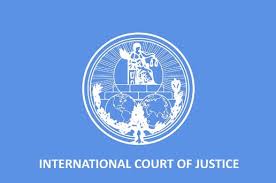The Permanent Court of International Justice and Domestic Courts: A Variation in Roles
The Permanent Court of International Justice and Domestic Courts: A Variation in Roles
Introduction
The Permanent Court of International Justice (PCIJ), established in 1922 under the League of Nations, was the first permanent international court tasked with settling disputes between states and giving advisory opinions on international legal questions. In contrast, domestic courts operate within sovereign states, applying and interpreting the internal laws of their jurisdiction.
Though both are courts of law, their roles, jurisdictions, and functions differ significantly due to the nature of the legal systems they operate within — international law for PCIJ and national law for domestic courts.
1. Role and Jurisdiction
Permanent Court of International Justice (PCIJ):
Jurisdiction:
The PCIJ dealt exclusively with disputes between states, interpretation of treaties, and questions of international law. It lacked jurisdiction over individuals or private parties.
Functions:
Settling international disputes peacefully.
Providing advisory opinions to international organizations.
Nature of Law Applied:
Primarily public international law, including treaties, customary international law, and principles governing relations between states.
Enforcement:
The PCIJ relied on the consent of states for jurisdiction and enforcement of its decisions; it had no direct enforcement mechanism.
Domestic Courts:
Jurisdiction:
Domestic courts adjudicate cases between individuals, between individuals and the state, and sometimes between states and individuals under national laws.
Functions:
Interpretation and application of domestic laws (civil, criminal, administrative).
Protection of rights and obligations of citizens.
Enforcement of laws within the state’s territory.
Nature of Law Applied:
National laws enacted by the legislature or derived from precedent.
Enforcement:
Domestic courts have coercive powers, including police and penal sanctions, to enforce judgments.
2. Variation in Roles
| Aspect | Permanent Court of International Justice | Domestic Courts |
|---|---|---|
| Subjects of Jurisdiction | States only | Individuals, entities, and sometimes states |
| Type of Law | International law | Domestic law |
| Enforcement of Decisions | Depends on state consent; no coercive enforcement | Coercive enforcement mechanisms within jurisdiction |
| Nature of Disputes | Inter-state disputes, treaty interpretations | Civil, criminal, administrative disputes |
| Role in Legal System | Ensure peaceful international relations | Administer justice and maintain law and order |
| Authority Source | Consent of states via treaties and agreements | Sovereign authority of the state |
3. Case Law Illustrations
a) The Lotus Case (France v. Turkey) (1927)
Context:
The PCIJ was asked to decide whether Turkey could exercise criminal jurisdiction over a French national involved in a collision on the high seas.
Role of PCIJ:
The Court ruled based on principles of international law, emphasizing state sovereignty and limitations on jurisdiction.
Significance:
Demonstrated PCIJ’s role in resolving jurisdictional disputes between states, shaping international legal principles.
b) The S.S. Wimbledon Case (1923)
Context:
The PCIJ considered Germany’s refusal to allow passage of a British ship through the Kiel Canal during post-WWI tensions.
Role of PCIJ:
The Court held that Germany was obligated to allow passage under international treaties.
Significance:
Showcased the PCIJ’s role in enforcing treaty obligations and maintaining international order.
c) The Kelsen Case (Austria v. Czechoslovakia) (1929)
Context:
Austria challenged the validity of a minority treaty agreement concerning Czechoslovakia.
Role of PCIJ:
The Court adjudicated on treaty interpretation, reinforcing the PCIJ’s role in legal dispute resolution between states.
d) Domestic Court Cases
Domestic courts, for example, may handle a contract dispute between two individuals or a criminal prosecution of an individual, something outside PCIJ’s jurisdiction.
Domestic courts enforce laws within the country and protect individual rights, which the PCIJ does not address.
4. Interrelationship and Complementarity
While the PCIJ handles international legal disputes, domestic courts maintain internal legal order.
There is an interaction between international law and domestic law, where:
Domestic courts may apply international law in relevant cases.
Domestic courts respect PCIJ’s decisions as part of international obligations.
However, ultimate enforcement power lies with domestic courts, as PCIJ lacks coercive enforcement powers.
Conclusion
The Permanent Court of International Justice and domestic courts serve distinct but complementary roles in the legal world. PCIJ focuses on maintaining peace and order among states under international law, relying on state consent and diplomatic compliance, while domestic courts enforce laws internally, adjudicate disputes between private parties, and possess coercive power to ensure compliance. The variation in roles reflects the different legal orders they belong to—international versus national.












comments